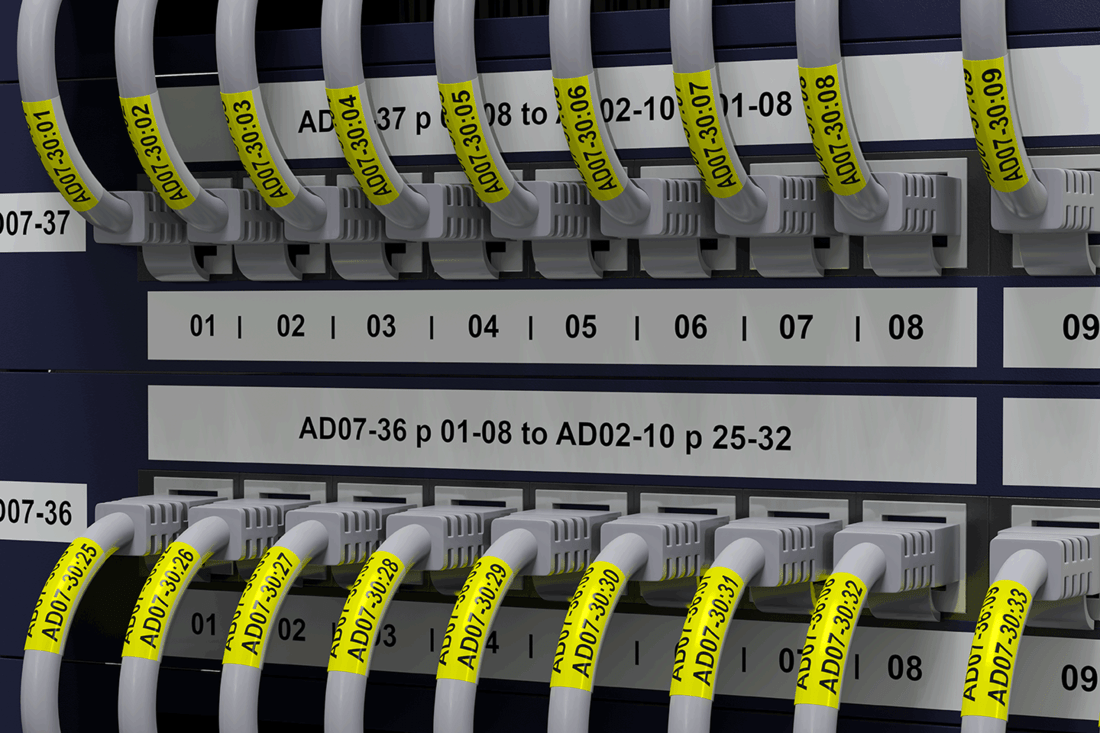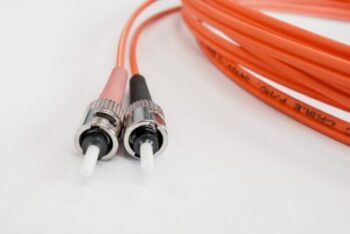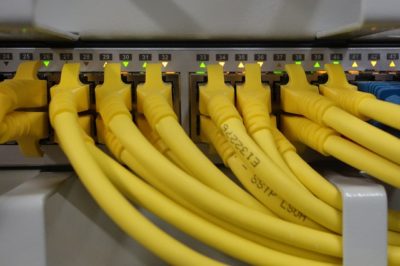In the intricate web of technology that powers modern businesses, the often-overlooked hero is the humble label. In a structured cabling system, labeling plays a crucial role that goes far beyond mere organization. In this post, we’ll explore why labeling is not just a best practice but an indispensable element for the efficiency, reliability, and future scalability of your network infrastructure.
Navigating Complexity
A structured cabling system is a complex network of cables, connectors, and hardware. Without efficient cable organization and labeling, cable identification for network infrastructure can become an intimidating task, like the proverbial needle in a haystack. Labels act as signposts, guiding technicians through the maze of cables with precision and speed, ultimately reducing downtime and frustration.
Efficient Troubleshooting
When network issues arise, time is of the essence. Labeling enables IT professionals to swiftly pinpoint the source of a problem. Whether it’s a faulty cable or a malfunctioning component, clear and accurate labels speed up the troubleshooting process. This not only minimizes downtime but also streamlines the resolution process, allowing businesses to maintain optimal productivity.
Streamlined Maintenance
Regular maintenance is a key aspect of ensuring a structured cabling system’s longevity and performance. Labeling simplifies the maintenance process by providing a clear roadmap of the entire network infrastructure. Technicians can easily identify and inspect specific components, making routine maintenance tasks more straightforward and less time-consuming.
Accurate Documentation
Documentation is the backbone of effective network management. Labels contribute to accurate and comprehensive documentation by clearly identifying each cable and its corresponding connection points. This documentation is invaluable for future expansions, modifications, or upgrades, ensuring that all changes are made with precision and adherence to the original design.
Facilitating Moves, Adds, and Changes (MACs)
In a dynamic business environment, reconfigurations and changes to the network are inevitable. Labels play a crucial role in facilitating Moves, Adds, and Changes (MACs) by providing a clear roadmap for adjusting, relocating, or adding new components. This agility is essential for businesses that need to adapt quickly to shifting requirements.
Compliance and Standards
The ANSI/TIA 606 standard emphasizes the importance of labeling in structured cabling systems. Following the 606 standard not only ensures compliance but also demonstrates a commitment to best practices. Labels that include information such as cable type and termination points contribute to a well-documented and standardized infrastructure.
Enhancing Future Scalability
A structured cabling system is an investment in the future. Proper labeling enhances the system’s scalability by providing a clear understanding of its current configuration. As businesses grow and technology evolves, having a labeled infrastructure allows for seamless expansions and upgrades, ensuring that the network remains adaptable to changing needs.
Labeling is the unsung hero that brings order to the complexity of a structured cabling system. It is the key to efficient troubleshooting, streamlined maintenance, and accurate documentation. As businesses increasingly rely on technology, recognizing the importance of labeling in maintaining a well-organized and high-performance network infrastructure becomes not just a best practice but an essential component of strategic IT management.















